
Research, Innovation & Enterprise
-
Message by Deputy Vice Chancellor
-
Research
Management Centre -
Key Research
Areas -
MSc & PhD by Research Programmes

PROFESSOR EMERITUS DR. ROSNAH BINTI MOHD ZAIN
Deputy Vice Chancellor
MESSAGE BY DEPUTY VICE CHANCELLOR OF RESEARCH INNOVATION AND ENTERPRISE
MAHSA University, through the office of the Deputy Vice Chancellor of Research Innovation and Enterprise, coordinates scientific research, encourages and supports its publication, and provides financial support to faculty members and full-time lecturers at the university to carry out scientific research. It also encourages the cooperation and collaboration among researchers at the university, as well as the establishment of specialized and interdisciplinary research teams. In addition, the collaboration with other institutes locally and internationally is highly encouraged.
The budget of the university's scientific research consists of two main sources: the allocation of scientific research from the university budget, and the support of projects received by faculty members from outside the university, with a number of research projects funded from outside.
While research is still an area of work in progress, MAHSA University is proud of the grants that the young scientists have been generating with their innovative projects. MAHSA University strives for interdisciplinary and collaborative research in addressing the most suitable thrust areas in the country and the world. The nature of research activity in MAHSA University focuses on amalgamating all the faculties together and defines the intellectual climate of the institution. Experimental investigation of the pathophysiology of human disease provides insight for developing novel strategies to maintain wellness and treat sickness. Systematic evaluation of those strategies involves various faculties together in their expertise— behavioural interventions, new pharmacological aspects, biomedical and molecular and other manipulations of cellular targets. This entire research enterprise should and must create the culture in which students are taught medicine and health science as a rational, evidence-based approach to improving human health. And also create the passion for dentists, pharmacologists, nurses, physiotherapists, healthcare professionals, scientists and engineers to pursue their contribution to development of science in their own little way of giving back to science progress and R&D. Innovations will be born when science and arts are combined in a specific research setting. Similarly, when medical and social sciences or engineering are blended in a specific research pursuit, new findings will arise, and these are the innovations we always seek for.
We look forward to having you with us on your pursuit to being a researcher. We aspire to drive forward through our collective contribution for a global pursuit. We invite researchers from all over the world to write to our faculty and collaborate. For masters and doctoral students too, we provide and promise an excellent environment.

KEY RESEARCH AREAS
Research and Innovation at MAHSA University
Welcome to the research and innovation hub of MAHSA University. Our dedication to cutting-edge research and discovery fosters innovation, addresses real-world challenges, and contributes to advancements across various fields. Below are the key areas of research focus, showcasing the breadth and depth of our endeavors.
1. Biomedical and Health Sciences- Exploring innovative therapies for chronic conditions such as cancer, diabetes, and cardiovascular diseases.
- Investigating the molecular mechanisms of wound healing, inflammation, and antimicrobial resistance.
- Developing natural and synthetic compounds for anti-psoriatic, anti-inflammatory, and neuroprotective applications
- Assessing the impact of nutrition, obesity, and glucose levels on disease progression and overall health
- Examining health-related behaviors, such as tobacco use and gaming addiction, for better intervention strategies.
2. Natural Products and Biotechnology
- Unlocking the potential of medicinal plants and natural products for therapeutic applications.
- Utilizing plant-derived compounds and exosomes for nanotherapeutic delivery and other biomedical innovations.
- Investigating the role of functionalized materials, such as chitosan and seaweed proteins, in pharmaceuticals and nutraceuticals.
- Advancing biocatalysis and the use of renewable resources in sustainable drug development
3. Engineering and Technology
- Developing advanced materials, including biodegradable composites and green construction materials.
- Designing and optimizing systems for 5G communication, energy efficiency, and autonomous mobility.
- Innovating in renewable energy solutions, such as microbial hydrogen production and solar tracking technologies.
- Enhancing manufacturing processes with cutting-edge techniques for CNC machining and robotics.
4. Environmental Sustainability
- Addressing water quality and pollution through innovative filtration and monitoring systems.
- Utilizing agricultural and plastic waste to create eco-friendly construction materials.
- Exploring the effects of indoor microbiomes and microplastics on human health
- Promoting community-based environmental initiatives, including river water quality assessments and green village development.
5. Clinical and Translational Research
- Advancing clinical diagnostics and personalized medicine through biomarker discovery.
- Investigating innovative surgical techniques, medical imaging, and minimally invasive treatments.
- Exploring dental materials and techniques for improved oral health outcomes.
- Examining lifestyle factors and their impact on physical and mental health.
6. Social and Behavioral Sciences
- Investigating the psychological and societal effects of the COVID-19 pandemic.
- Exploring the relationship between technology usage and behavioral health.
- Conducting community studies on health awareness, professional development, and educational methods
- Examining employee well-being and its role in organizational success.
7. Education and Innovation
- Evaluating the effectiveness of innovative teaching tools and methods, including 3D printing and hybrid learning models.
- Enhancing student engagement and performance through technology-driven education.
- Investigating the impact of green HR practices and smart technologies in academic institutions.
Why Choose MAHSA University for Research?
- State-of-the-Art Facilities: Our labs and research centers are equipped with advanced tools and technologies to support diverse research needs.
- Collaborative Environment: We foster a culture of collaboration among multidisciplinary teams, enabling impactful discoveries.
- Focus on Real-World Impact: Our projects aim to address pressing societal, health, and environmental challenges.
Join Our Research Community
Whether you are a researcher, student, or collaborator, MAHSA University offers a platform to innovate, explore, and make a difference. Discover our ongoing projects, connect with our experts, and learn how you can contribute to shaping the future.
For more details, please visit the Research Management Centre (RMC) located at Room E7.14, Level 7, Empathy Building, MAHSA University, Bandar Saujana Putra, or reach out to us via email at rmc@mahsa.edu.my
RESEARCH MANAGEMENT CENTRE, MAHSA UNIVERSITY

MAHSA University carries out research across a broad range of basic, applied and clinical topics that mirror the competencies of our faculties and academic staff. Thus, our Research Management Centre (RMC) was set up to oversee and manage all research activities of the University. It is headed by the Deputy Vice Chancellor (Research & innovation), assisted by the Secretary and Executive Officer of RMC.
The RMC's overall function is to :
- Promote research culture among the academic staff
- Build research capacity
-
Promote research activities through staff development
programs and meetings - Review and approve research proposals
- Review Ethical issues pertaining to research proposals
- Monitor research projects
- Monitor publications and presentation of research papers
- Manage data input for MyRA
- Manage application for external research grants; liaise with relevant authorities.
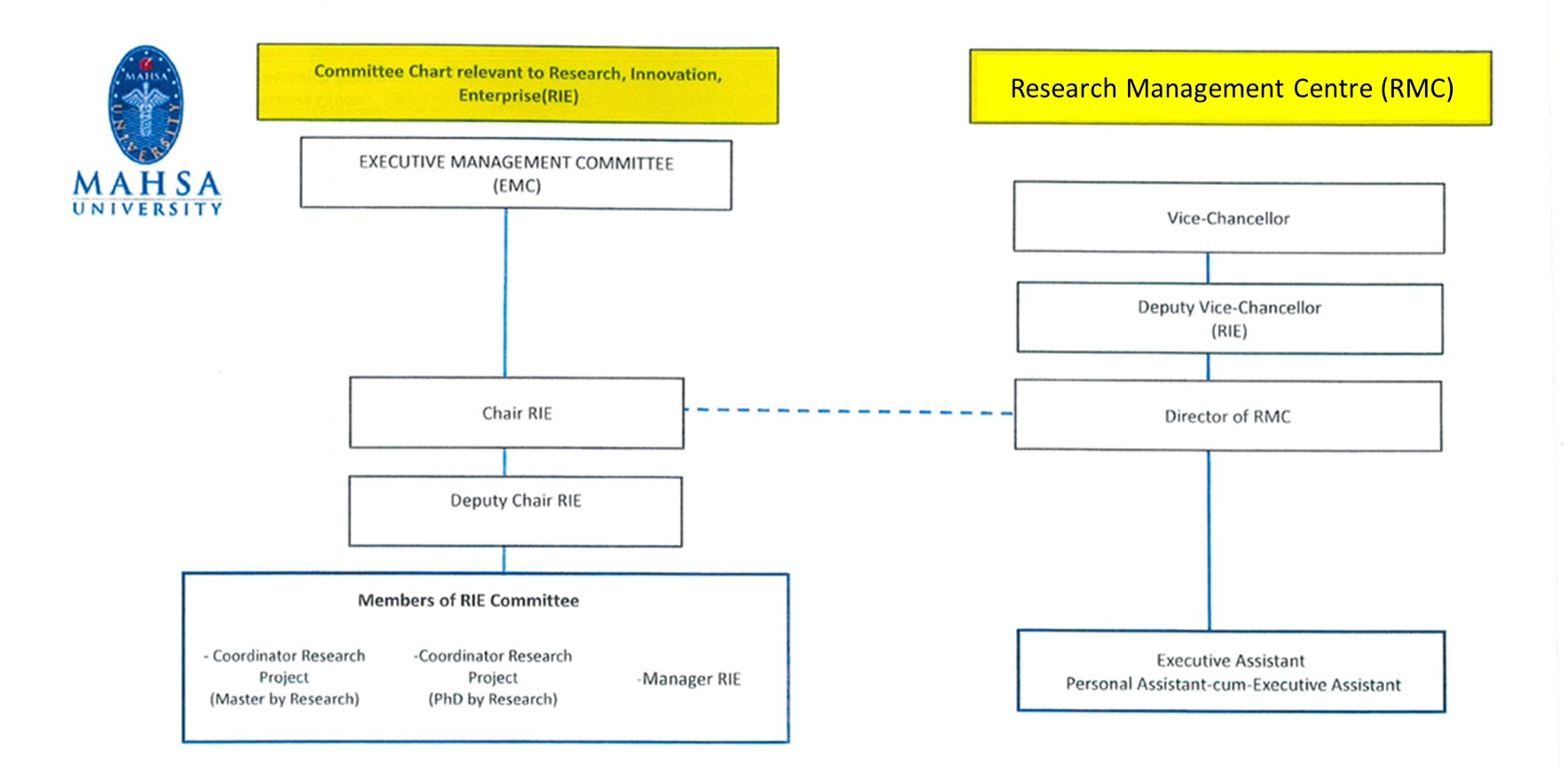
The main Units under RMC are :
Strategic and Planning Office (SPO)
• Role : Assist the faculties to develops the strategic plans for research activities.
• Operation :
o Formulating research policies and priorities.
o Setting the long-term goals and objectives for research initiated.
o Aligning research initiatives with the university interest.
o Facilitating collaboration between the faculties and/or external parties for multi-disciplinary research.
o Monitoring and evaluating the long-term goals, objectives, and the impact of research programs.
Proposal Development and Support Office (PDSO)
• Role : Assists researchers in the preparation and submission of research proposals.
• Operation :
o Providing guidance on funding opportunities.
o Offering workshops and training on proposal writing.
o Reviewing and editing proposals for clarity and compliance.
o Facilitating multi-disciplinary project for joint proposals.
o Looking for available external grants.
Research Operation and Management Office (ROMO)
• Role : Manages the day-to-day operations of research projects and grants.
• Operation :
o Overseeing project timelines and budgets.
o Ensuring compliance with regulatory and ethical standards.
o Coordinating with various departments for resource allocation.
o Handling administrative tasks related to research grants and contracts.
Innovation Central (IC)
• Role : Fosters innovation and supports the commercialization of research outcomes.
• Operation :
o Identifying and protecting intellectual property.
o Providing resources for prototype development and testing.
o Connecting researchers with industry partners and investors with marketable commercials products.
o Facilitate collaborate with sustainable ecopark related innovation projects.
Industry and Community Outreach Office (ICOO)
• Role : Identify the research gap of the community and industry through engagements.
• Operation :
o Identifying potential research impact on society and local communities.
o Facilitating industry-academia collaborations.
o Participate in community engagement events and partnership activities.
o Promoting our university research capabilities to the industries and communities.
Commercialization and Outreach Office (COO)
• Role : Communication of our research activities to the community, industry partners.
• Operation :
o Promoting our research impact and products to society, local communities, industry and partners.
o Managing outreach programs and public relations.
o Participate in community engagement events and partnership activities.
o Nurturing Commercialization research products or service within MRI incubator
Research & Innovation Committees
a)Research, Innovation & Enterprise (RIE) Committee :
• Develop and oversee research, innovation, and enterprise strategies in alignment with organizational goals.
• Recommend policies and frameworks to support research integrity, innovation, and commercialization of outputs.
• Advise on resource allocation, including funding and infrastructure, to facilitate high-impact research and innovative projects.
• Facilitate collaborations with academic institutions, industry partners, and government agencies to foster innovation and enterprise opportunities.
• Promote the development of skills, tools, and processes to enhance the organization's research and innovation capacity.
• Review and evaluate the progress, impact, and outcomes of funded projects and initiatives.
• Ensure adherence to research ethics, compliance requirements, and intellectual property policies.
• Promote knowledge dissemination, technology transfer, and enterprise development to maximize societal and economic benefits.
b)Human Ethical Committee (HEC) :
• Review and evaluate research proposals involving human participants to ensure they comply with ethical principles such as autonomy, beneficence, non-maleficence, and justice.
• Grant or deny ethical approval for projects based on ethical considerations, risk assessment, and adherence to regulations.
• Monitor approved projects to ensure continued compliance, addressing any ethical issues that arise during research.
• Provide guidance to researchers on ethical concerns, informed consent processes, and participant protection.
• Contribute to the development and implementation of institutional policies on human research ethics.
• Promote awareness of ethical research practices among researchers, staff, and students through education and training.
• Ensure adherence to national and international guidelines, laws, and best practices related to human research ethics.
• Review any breaches of ethical standards and recommend appropriate actions.
3. Animal Ethical Committee (AEC)
• Review and assess all research and teaching proposals involving the use of animals to ensure they meet ethical principles, including the "3Rs":
i. Replacement: Use of alternatives to animals where possible.
ii. Reduction: Minimization of the number of animals used.
iii. Refinement: Improvement of procedures to minimize pain, distress, or suffering.
• Approve or reject projects based on ethical and welfare considerations.
• Monitor approved projects to ensure ongoing compliance with approved protocols.
• Conduct inspections of facilities, procedures, and animal care practices.
• Provide advice to researchers, educators, and staff on animal welfare and ethical requirements.
• Develop, review, and recommend policies and guidelines related to animal use in the institution.
• Investigate and address any breaches of ethical standards, non-compliance, or unexpected adverse events.
• Promote awareness of ethical animal use and ensure proper training for personnel involved in animal care and research.
• Ensure proper record-keeping and submit required reports to relevant authorities and the institution’s leadership.
4. Research Review Committee (RRC)
• Review the quality, feasibility, and methodology of all research proposals submitted for approval.
• Ensure that research proposals adhere to ethical principles, relevant guidelines, and compliance requirements.
• Assess resource availability, including funding, facilities, and personnel, to support proposed research projects.
• Ensure adherence to institutional, national, and international policies and regulations governing research.
• Evaluate and mitigate any potential risks, including safety, ethical, financial, and reputational concerns.
• Approve, recommend modifications to, or reject research proposals based on the outcome of the review process.
• Oversee the progress of approved research projects, ensuring ongoing compliance and addressing any deviations or concerns.
External Liaison Secretariat
a) MyRA :
* Since 2012 MAHSA University has participated in MyRA, which is an assessment for research capacity and performance, set by the Ministry of higher education.
* This Secretariat collects and upload data required through e-MyRA.
b) MyGrants :
* The same Secretariat receives and process proposals for all the grants offered by the Ministry of higher Education, called MyGrants.
* RMC appoints internal evaluators/panel to review and recommends the proposals to the Ministry.
c) Science Fund :
* MAHSA University has successfully satisfied the requirements set by the Ministry of Science, Technology & Innovation (MOSTI) and able to apply for Science Fund from the Ministry.
* The same Secretariat manages the application for Science Fund and liaise with MOSTI.
d) External Collaboration :
* The Secretariat facilitates all initiatives for research collaboration and MoU/MoA with other Universities (national and international) and partners from the private sector or the industry.
Research Facilities
The RMC is responsible to provide and upkeep the following research facilities
a) Research Laboratories :
At MAHSA University, we offer quality research facilities to support our researchers, postgraduate students, and undergraduates. These include the following specialized labs:
Faculty of Medicine
Faculty of Dentistry
Faculty of Pharmacy & Biomedical Sciences
Faculty of Engineering, Built Environment & IT
Faculty of Health Sciences, Nursing & Environment
Centre of Pre-University
Centre of Hospitality & Tourism Management
MSc & PhD by Research Programmes
Doctor of Philosophy by Research (DOPR)
PROGRAMME OVERVIEW
The Doctor of Philosophy by Research (DOPR) is an advanced, multi-disciplinary postgraduate degree programme designed for candidates with a passion for research, discovery, and academic excellence. This programme is tailored for individuals seeking to contribute to the advancement of knowledge, pursue careers in academia, research, consultation, or specialised fields across a broad range of disciplines.
Being a qualification that opens up boundless opportunities in research and industry, MAHSA University’s DOPR stands as a premier programme for scholars aspiring to push the boundaries of knowledge. Through independent, original research guided by expert supervisors, candidates will develop critical thinking, analytical skills, and a profound understanding of their chosen area of study.
Graduates of the DOPR from MAHSA University will be well-prepared to excel in academia, research institutions, and beyond. They will hold the recognition of respected universities, research facilities, and professional organisations worldwide, equipped to lead innovations, solve real-world challenges, and make impactful contributions to society.
 Programme Structure
Programme Structure
| SUBJECT CLASSIFICATION | DESCRIPTION |
|---|---|
| 6-month progress report and presentation | Preparation and presentation of a detailed progress report highlighting the research conducted, challenges faced, and future directions. |
| Research Methodology Course | Completion of a course covering experimental design, statistical analysis, scientific writing, and project management. |
| Defence research proposal (DRP) | Presentation of the research proposal before a panel of experts to validate objectives, methodologies, and timelines. |
| Ethics approval (Animal/Human/Not applicable) | Obtaining ethical clearance for studies involving animals, humans, or other applicable subjects |
| Research activities depend on nature of work (methodology) | Implementation of approved research methodologies, including data collection, experimentation, and analysis. |
| Data analysis | Processing, analyzing, and interpreting data using relevant tools and statistical methods |
| Thesis writing (chapters) | Writing the thesis with regular consultations with supervisors, including all necessary sections such as introduction, methodology, results, and conclusion. |
| Scientific paper publication | One published or accepted journal article and One published, accepted, or under review |
| Thesis submission | Submission of the finalized thesis in soft-bound format for examination. |
| Viva-voce (Final) | Defending the thesis and research findings before an examination panel. |
| Post viva-voce | Correction of the thesis based on examiner feedback and submission of the corrected thesis in hardbound format. |
 Entry Requirement
Entry Requirement
(i) Masters degree in relevant field from universities recognized by the Senate of MAHSA University
(ii) Bachelor's degree candidates with minimum CGPA 3.67 registered for Masters can apply to change to a Doctorate Level provided they comply and are competent to do research at a Doctorate level that is approved by the University Senate or other equivalent qualifications approved by the Senate of MAHSA University
 Career Opportunities
Career Opportunities
Rewarding careers at:
-
Academic and Education
-
University Professor or Lecturer
-
Postdoctoral Research Fellow
-
Curriculum Developer
-
Science Policy Advisor
-
Government Research Officer
-
Regulatory Affairs Specialist
-
Principal Scientist or Researcher
-
Research Director or Manager
-
Laboratory Head
-
R&D Specialist
Government and Policy-Making
Research and Development (R&D) Industry
-
Healthcare and Pharmaceutical Industries
-
Scientific Consultant
-
Clinical Research Scientist
-
Medical Science Liaison (MSL)
-
Start-up Founder in scientific or technological fields
-
Innovator of products or solutions in high-tech industries
-
Patent Specialist or Intellectual Property (IP) Consultant
Entrepreneurship and Innovation
 Advantages
Advantages
-
Quality
The Doctor of Philosophy by Research is designed in consultation with a panel of local and international experts to ensure the programme meets global academic and research standards.
-
Affordable
Tuition fees for the Doctor of Philosophy by Research are kept at an affordable level to reduce barriers to accessing high-quality education and advanced research opportunities.
-
Recognition
The Doctor of Philosophy by Research is approved by the Malaysian Qualifications Agency (MQA) and the Ministry of Higher Education Malaysia.
-
Awarded by
The Doctor of Philosophy by Research is awarded by MAHSA University, a leading institution in Medical, Health Science, and Research Education in Malaysia.
Master in Science by Research (MSR)
PROGRAMME OVERVIEW
The Master by Research (MSR) programme at MAHSA University is a postgraduate degree designed for students who wish to focus deeply on a specific research area, develop advanced expertise, and contribute to creating new knowledge in their chosen field. This programme caters to those pursuing careers in academia, research institutions, industry, or other specialized fields requiring advanced research skills.
Candidates in the MSR programme typically progress to successful careers in research and development, academic teaching, science communication, consultancy, and roles in regulatory bodies and private or public organizations.
Throughout the programme, students will undertake intensive research in a selected discipline area. They will also be exposed to advanced topics such as research methodology, scientific writing, data analysis, critical thinking, and project management. Depending on their research focus, they may explore cutting-edge subjects such as molecular biology, biomedical sciences, biochemistry, bioinformatics, biotechnology, or other relevant specializations aligned with their field of study.
MAHSA University’s Master by Research programme equips students with the skills and knowledge to excel in their careers while fostering innovation and critical thinking. Graduates of the programme will stand out as independent researchers and experts in their respective domains
 Programme Structure
Programme Structure
| SUBJECT CLASFFICATION | DESCRIPTION |
|---|---|
| 6-month progress report and presentation | Preparation and presentation of a detailed progress report highlighting the research conducted, challenges faced, and future directions. |
| Research Methodology Course | Completion of a course covering experimental design, statistical analysis, scientific writing, and project management. |
| Defence research proposal (DRP) | Presentation of the research proposal before a panel of experts to validate objectives, methodologies, and timelines. |
| Ethics approval (Animal/Human/Not applicable) | Obtaining ethical clearance for studies involving animals, humans, or other applicable subjects |
| Research activities depend on nature of work (methodology) | Implementation of approved research methodologies, including data collection, experimentation, and analysis. |
| Data analysis | Processing, analyzing, and interpreting data using relevant tools and statistical methods |
| Thesis writing (chapters) | Writing the thesis with regular consultations with supervisors, including all necessary sections such as introduction, methodology, results, and conclusion. |
| Scientific paper publication | One published or accepted journal article and One published, accepted, or under review |
| Thesis submission | Submission of the finalized thesis in soft-bound format for examination. |
| Viva-voce (Final) | Defending the thesis and research findings before an examination panel. |
| Post viva-voce | Correction of the thesis based on examiner feedback and submission of the corrected thesis in hardbound format. |
 Entry Requirement
Entry Requirement
(i)A Bachelor’s Degree in a relevant field with a minimum CGPA of 2.75 from a university recognized by the Senate of MAHSA University.
(ii) A Bachelor’s Degree in a relevant field with a CGPA of 2.50 from a university recognized by the Senate of MAHSA University may be considered, subject to a detailed evaluation.
(iii) A Bachelor’s Degree in a relevant field with a CGPA below 2.50 or its equivalent from a university recognized by the Senate of MAHSA University may be accepted, provided the candidate has at least 5 years of relevant work experience.
(iv) A Bachelor’s Degree in a relevant field with First Class Honours from any university recognized by the Senate of MAHSA University.
(v)Candidates with a Bachelor’s Degree and a minimum CGPA of 3.57 who are registered as Master’s students may apply for conversion to a PhD research programme, subject to demonstrating the required competency and research capability equivalent to a PhD, with approval from the Senate of MAHSA University.
(vi) Other equivalent qualifications as approved by the Senate of MAHSA University.
 Career Opportunities
Career Opportunities
Rewarding careers at:
Research Scientist in academic, government, or industrial laboratories
Clinical Research Associate (CRA) in pharmaceutical and biotechnology companies
Science Communicator or Medical Writer for research publications and media outlets
Regulatory Affairs Specialist in healthcare or pharmaceutical industries
Toxicologist in environmental, clinical, or pharmaceutical sectors
Lecturer or Academic Researcher at universities and colleges
Data Analyst for research and healthcare organizations
Quality Control or Quality Assurance Specialist in pharmaceuticals and related industries
Biotech or Pharmaceutical Consultant for R&D projects
 Advantages
Advantages
Quality
The Master by Research (MSR) programme is developed in consultation with experts to ensure high academic and research standards.
Affordable
Tuition fees are kept at an accessible level to reduce financial barriers for students pursuing quality postgraduate research degrees.
Recognition
The programme is approved by the Malaysian Qualifications Agency and the Ministry of Higher Education Malaysia, ensuring credibility and recognition.
Awarded by MAHSA University
The MSR degree is awarded by MAHSA University, a leader in medical and health science education in Malaysia.
MSc & PhD by Research Programmes
Doctor of Philosophy by Research (DOPR)
The Doctor of Philosophy by Research (DOPR) is an advanced, multi-disciplinary postgraduate degree programme designed for candidates with a passion for research, discovery, and academic excellence. This programme is tailored for individuals seeking to contribute to the advancement of knowledge, pursue careers in academia, research, consultation, or specialised fields across a broad range of disciplines.
Being a qualification that opens up boundless opportunities in research and industry, MAHSA University’s DOPR stands as a premier programme for scholars aspiring to push the boundaries of knowledge. Through independent, original research guided by expert supervisors, candidates will develop critical thinking, analytical skills, and a profound understanding of their chosen area of study.
Graduates of the DOPR from MAHSA University will be well-prepared to excel in academia, research institutions, and beyond. They will hold the recognition of respected universities, research facilities, and professional organisations worldwide, equipped to lead innovations, solve real-world challenges, and make impactful contributions to society.
 Programme Structure
Programme Structure
| Academic | Description |
|---|---|
| 6-month progress report and presentation | Preparation and presentation of a detailed progress report highlighting the research conducted, challenges faced, and future directions. |
| Research Methodology Course | Completion of a course covering experimental design, statistical analysis, scientific writing, and project management. |
| Defence research proposal (DRP) | Presentation of the research proposal before a panel of experts to validate objectives, methodologies, and timelines. |
| Ethics approval (Animal/Human/Not applicable) | Obtaining ethical clearance for studies involving animals, humans, or other applicable subjects |
| Research activities depend on nature of work (methodology) | Implementation of approved research methodologies, including data collection, experimentation, and analysis. |
| Data analysis | Processing, analyzing, and interpreting data using relevant tools and statistical methods |
| Thesis writing (chapters) | Writing the thesis with regular consultations with supervisors, including all necessary sections such as introduction, methodology, results, and conclusion. |
| Scientific paper publication | One published or accepted journal article and One published, accepted, or under review |
| Thesis submission | Submission of the finalized thesis in soft-bound format for examination. |
| Viva-voce (Final) | Defending the thesis and research findings before an examination panel. |
| Post viva-voce | Correction of the thesis based on examiner feedback and submission of the corrected thesis in hardbound format. |
 Entry Requirement
Entry Requirement
| REQUIREMENTS |
|---|
| Masters degree in relevant field from universities recognized by the Senate of MAHSA University |
| Bachelor's degree candidates with minimum CGPA 3.67 registered for Masters can apply to change to a Doctorate Level provided they comply and are competent to do research at a Doctorate level that is approved by the University Senate or other equivalent qualifications approved by the Senate of MAHSA University |
 Career Opportunities
Career Opportunities
Food & Beverage Entrepreneur
Food Service Manager
Catering Manager
Bar Tender
Barista
Cook
 Advantages
Advantages
Purpose-built hospitality laboratories
Develop entrepreneurial competency
Focus on functional work skills
Dynamic and innovative teaching approach
Industry relevant curriculum
Strong industry linkage
MSc & PhD by Research Programmes
Doctor of Philosophy by Research (DOPR)
PROGRAMME OVERVIEW
The Doctor of Philosophy by Research (DOPR) is an advanced, multi-disciplinary postgraduate degree programme designed for candidates with a passion for research, discovery, and academic excellence. This programme is tailored for individuals seeking to contribute to the advancement of knowledge, pursue careers in academia, research, consultation, or specialised fields across a broad range of disciplines.
Being a qualification that opens up boundless opportunities in research and industry, MAHSA University’s DOPR stands as a premier programme for scholars aspiring to push the boundaries of knowledge. Through independent, original research guided by expert supervisors, candidates will develop critical thinking, analytical skills, and a profound understanding of their chosen area of study.
Graduates of the DOPR from MAHSA University will be well-prepared to excel in academia, research institutions, and beyond. They will hold the recognition of respected universities, research facilities, and professional organisations worldwide, equipped to lead innovations, solve real-world challenges, and make impactful contributions to society.
 Programme Structure
Programme Structure
| Academic | Description |
|---|---|
| 6-month progress report and presentation | Preparation and presentation of a detailed progress report highlighting the research conducted, challenges faced, and future directions. |
| Research Methodology Course | Completion of a course covering experimental design, statistical analysis, scientific writing, and project management. |
| Defence research proposal (DRP) | Presentation of the research proposal before a panel of experts to validate objectives, methodologies, and timelines. |
| Ethics approval (Animal/Human/Not applicable) | Obtaining ethical clearance for studies involving animals, humans, or other applicable subjects |
| Research activities depend on nature of work (methodology) | Implementation of approved research methodologies, including data collection, experimentation, and analysis. |
| Data analysis | Processing, analyzing, and interpreting data using relevant tools and statistical methods |
| Thesis writing (chapters) | Writing the thesis with regular consultations with supervisors, including all necessary sections such as introduction, methodology, results, and conclusion. |
| Scientific paper publication | One published or accepted journal article and One published, accepted, or under review |
| Thesis submission | Submission of the finalized thesis in soft-bound format for examination. |
| Viva-voce (Final) | Defending the thesis and research findings before an examination panel. |
| Post viva-voce | Correction of the thesis based on examiner feedback and submission of the corrected thesis in hardbound format. |
 Entry Requirement
Entry Requirement
| REQUIREMENTS |
|---|
| Masters degree in relevant field from universities recognized by the Senate of MAHSA University |
| Bachelor's degree candidates with minimum CGPA 3.67 registered for Masters can apply to change to a Doctorate Level provided they comply and are competent to do research at a Doctorate level that is approved by the University Senate or other equivalent qualifications approved by the Senate of MAHSA University |
 Career Opportunities
Career Opportunities
-
Food & Beverage Entrepreneur
-
Food Service Manager
-
Catering Manager
-
Bar Tender
-
Barista
-
Cook
 Advantages
Advantages
-
Purpose-built hospitality laboratories
-
Develop entrepreneurial competency
-
Focus on functional work skills
-
Dynamic and innovative teaching approach
-
Industry relevant curriculum
-
Strong industry linkage
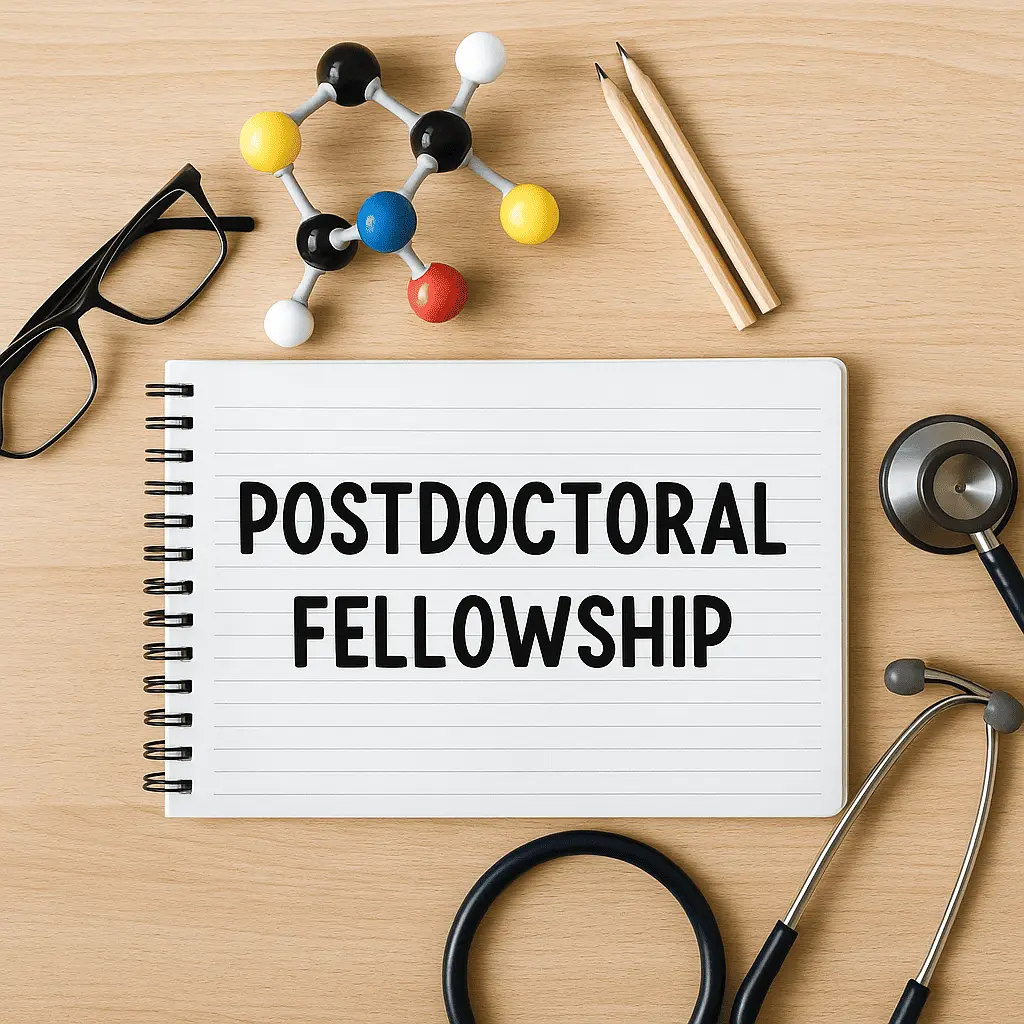
POSTDOCTORAL FELLOWSHIP (PDF)
Fellowship Overview
The MAHSA University Postdoctoral Fellowship (PDF) Program is a prestigious, merit-based initiative designed to support early-career researchers. Open to PhD holders (within the last five years), this program encourages impactful, interdisciplinary research aligned with societal and commercial needs — locally and globally.
Fellows will receive mentorship from MAHSA supervisors and can conduct their research remotely. Throughout the 12-month fellowship, candidates are expected to publish in high-impact journals and contribute to MAHSA’s research ecosystem through events like Research Day and Gallery Walk.
Accepted Streams
- STEM (Science, Technology, Engineering, Mathematics)
- Business, Management, Accounting, Economics / Social Sciences
- Healthcare and Allied Health Sciences
- Medicine, Bio Science, Pharmacy, Dentistry, Medical Technology
Entry Requirements
- PhD awarded within the last 5 years (recognized in Malaysia)
- No prior postdoctoral fellowship held
- h-index ≥ 3 in Scopus or 4 Scopus-indexed journal publications
- Research proposal with societal relevance and commercialization potential
Fellowship Benefits
- Remote supervision by MAHSA faculty
- Opportunity to collaborate with MRI Sdn. Bhd.
- Global publication opportunities via MAHSA Press (ISBN-enabled)
- Showcase at institutional events for seed funding and exposure
Expected Outcomes
- Conduct research with societal/commercial impact
- Submit a final thesis report
- Publish at least 3 SCOPUS and 2 ISI with Q1 or Q2; conferences not accepted
Why Choose MAHSA?
- Prestigious institution with state-of-the-art infrastructure
- Over 300+ active researchers and a global research network
- Zero fees for online-mode participants
- PDF Certificate conferred at MAHSA University's Research Day event
Ready to apply? Visit study.mahsa.edu.my to submit your application today!
For queries, contact us via email at rmc@mahsa.edu.my


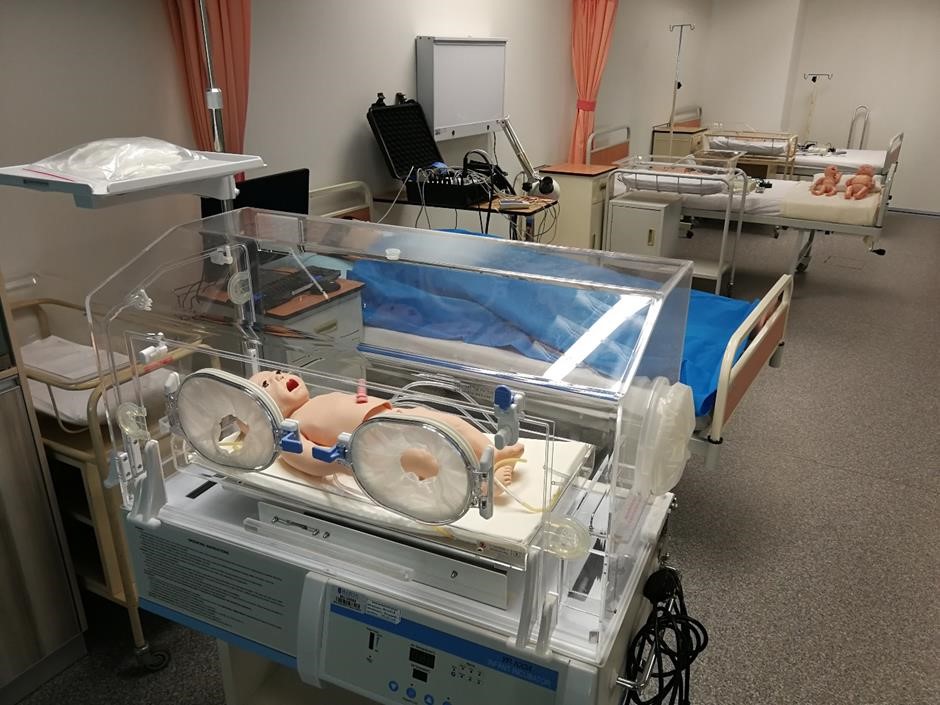

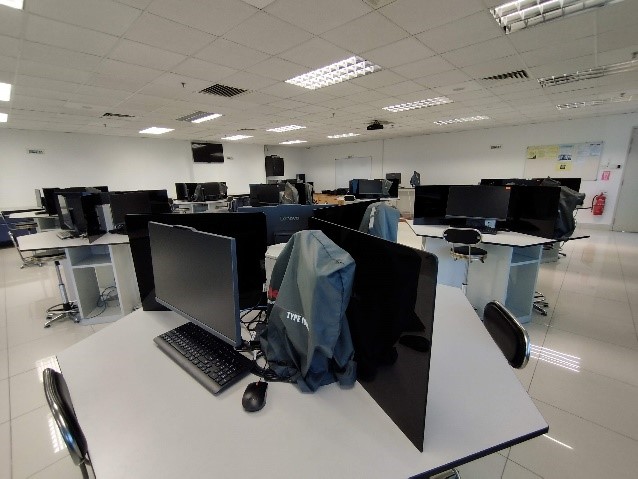
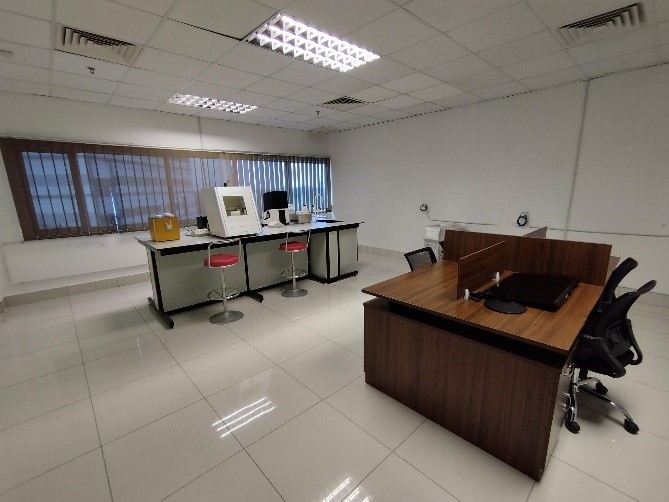
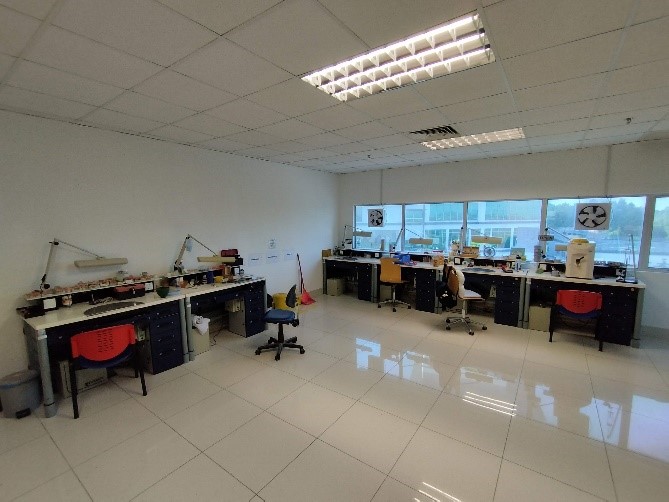


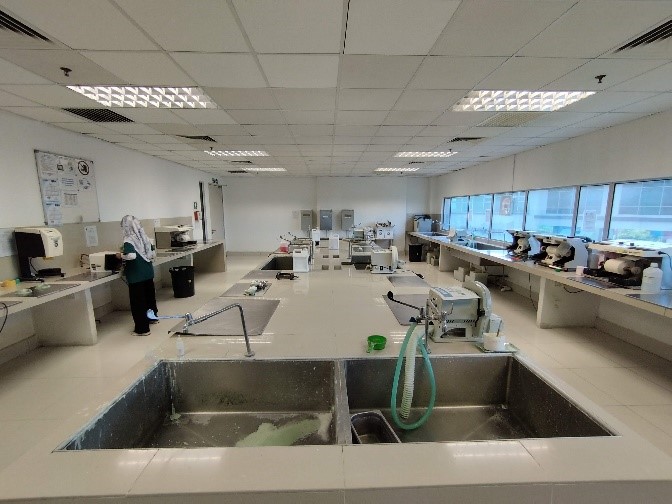

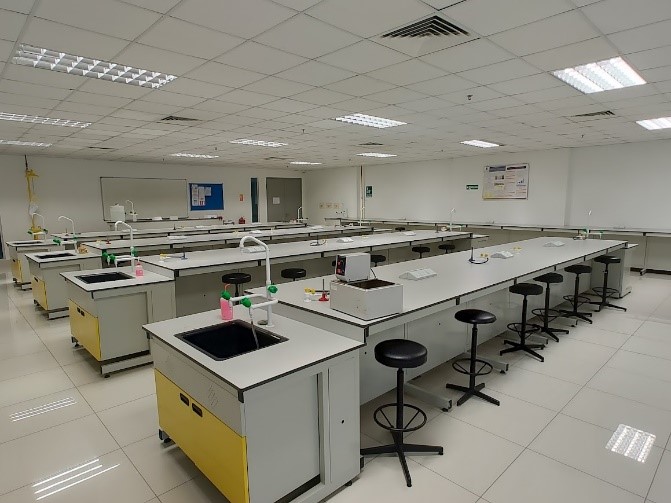
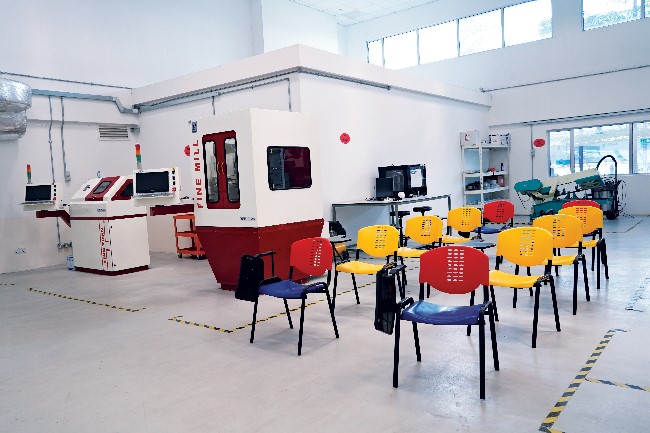
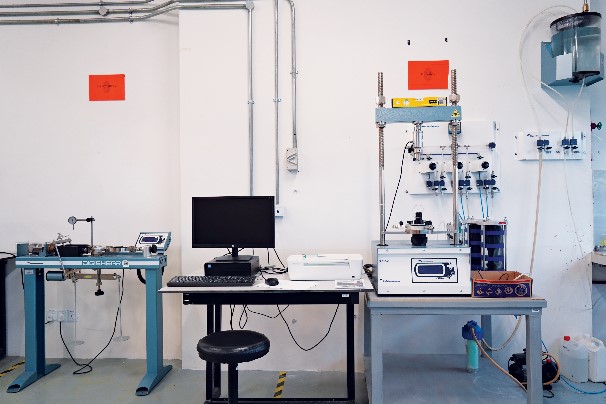

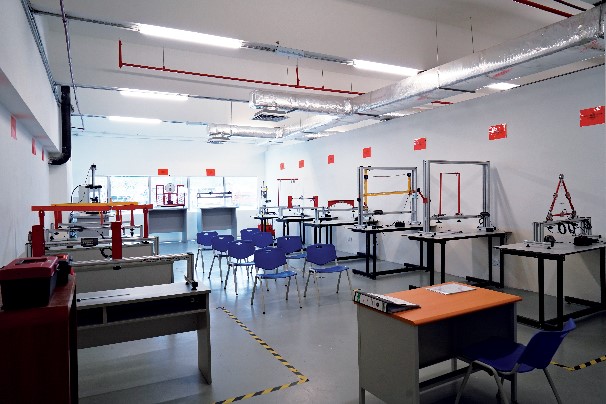



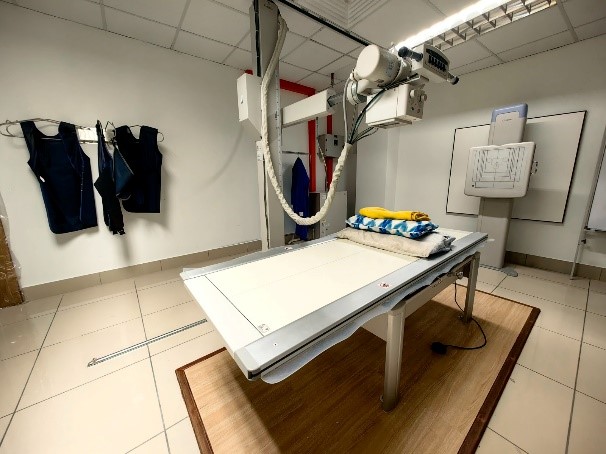
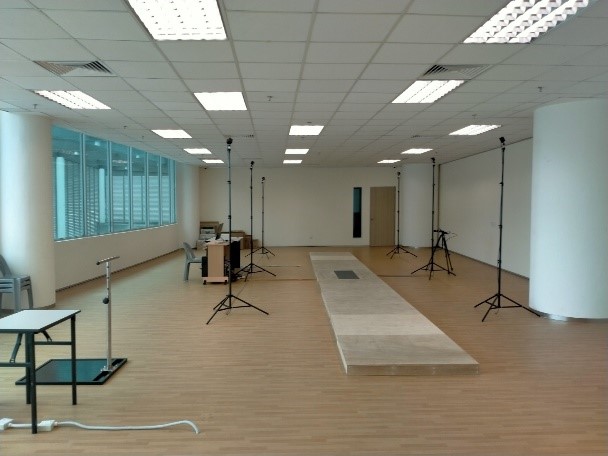



.png)






.png)


